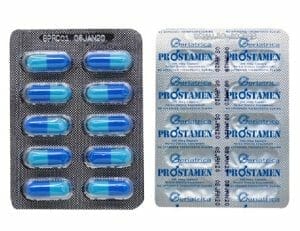Table of Contents
Prostate-Specific Antigen (PSA) is a protein produced by the cells of the prostate gland. PSA is mostly found in semen, but it is also present in small amounts in the blood. PSA testing can be used to screen for prostate cancer. In Filipino men, the incidence of prostate cancer is relatively low, but the disease is still the third leading cause of cancer death in Filipino men.
Early detection is key to successful treatment, and the prostate-specific antigen (PSA) test is the best way to find prostate cancer early. The PSA test measures the level of PSA in a man’s blood. A high PSA level may be a sign of prostate cancer.
The PSA test is important for Filipino men because it can help save lives.
Many Filipino men are not aware of the importance of prostate-specific antigen (PSA) testing. In this article, we will discuss why it is important for Filipino men to get screened for PSA and how to take the test.

What Is Prostate Specific Antigen?
Prostate-specific antigen (PSA) is a protein produced by the prostate gland. It is a good indicator of the health of the prostate and can be used to monitor the progression of prostate cancer. PSA levels may also be used to decide when to start treatment for prostate cancer.
Prostate-specific antigen is a glycoprotein that is produced by the cells of the prostate gland. PSA is present in small amounts in the serum of healthy Filipino men, and its levels increase in the presence of prostate cancer. PSA levels can also be elevated in other conditions, such as benign prostatic hyperplasia. The PSA test is used to screen for prostate cancer and to monitor the treatment of this disease.

Why Is Prostate-Specific Antigen Testing Important For Filipino Men?
It is important for Filipino men to get tested for prostate-specific antigen (PSA) because it is a good indicator of the health of the prostate. PSA levels may also be used to decide when to start treatment for prostate cancer.
Prostate cancer in the Philippines is frequently fatal from cancer and is widespread. Getting the right treatment at the right time may depend on early detection.
PSA levels can rise as a result of prostate cancer. Many non-cancerous illnesses, however, can also raise PSA levels. The PSA test can identify elevated PSA levels in the blood, but it cannot offer accurate diagnostic data regarding the prostate’s health.
How To Take The Test
There are two ways to take the PSA test – through a blood test or a digital rectal exam (DRE).
A blood test is the most common way to take the PSA test. In this method, a healthcare professional will take a blood sample from your arm and send it to a laboratory for analysis.
A digital rectal exam (DRE) is another way to take the PSA test. In this method, a healthcare professional will insert a gloved, lubricated finger into your rectum to feel for any abnormalities in the prostate gland.
Both of these methods are effective in taking the PSA test. Talk to your healthcare professional about which method is right for you.

PSA Test Variations
Prior to choosing whether to conduct a biopsy to check for malignant tissue, your doctor in the Philippines may employ additional methods of analyzing PSA data. In order to increase the PSA test’s efficacy as a screening tool, these additional techniques are being used.
To ascertain whether different PSA tests offer any discernible advantages, researchers are still looking into these variances:
- PSA Velocity
The variation in PSA levels over time is known as PSA velocity. An aggressive form of cancer or the presence of cancer may be indicated by a sudden increase in PSA. Recent research, however, have questioned the usefulness of PSA velocity in foretelling a prostate cancer diagnosis from biopsy.
- PSA Density
PSA production per volume of tissue is higher in prostate tumors than in benign situations. PSA readings are adjusted for prostatic volume using PSA density measures. Transrectal ultrasonography or an MRI are typically needed to measure PSA density.
- Percentage of Free PSA
There are two ways that PSA might circulate in the blood: linked to certain blood proteins or unbound (free). It may be more probable that you have prostate cancer if you have a high PSA level but a low proportion of free PSA.

What Should I Expect During the PSA Test?
The Medical technologist or lab technologist will have to draw venous blood from your arm, have the collected specimen spun in a centrifuge, and measure the serum for Prostate-Specific Antigen (PSA) levels.
What Are The Risks Of Not Getting Tested?
Not getting tested for prostate-specific antigen (PSA) can have serious consequences. Prostate cancer is a leading cause of death in men, and early detection is critical to treatment. PSA levels can rise as a result of prostate cancer, but many non-cancerous illnesses can also raise PSA levels. The PSA test is an important tool for identifying elevated PSA levels, but it cannot offer accurate diagnostic data regarding the prostate’s health. Talk to your healthcare professional about getting tested for PSA.

What Are The Risks of Undergoing a PSA Test?
There are risks associated with any medical test, and the PSA test is no exception. The most common risks associated with the PSA test are false positives and false negatives. A false positive result indicates that the PSA level is elevated when there is no prostate cancer present. A false negative result indicates that the PSA level is normal when prostate cancer is present. Both of these scenarios can lead to unnecessary anxiety and/or treatment.
Other risks associated with the PSA test include bruising, bleeding, and infection at the site of blood draw or DRE.

Who Can Administer PSA Test?
Medical Technologists or Laboratory Technicians are better trained in collecting, processing, and releasing results for Prostate-Specific Antigen Tests.
What Are The Limitations of the Test?
The following are some of the limitations of the PSA Test:
- PSA-Lowering Factors – Large doses of some chemotherapeutic drugs, as well as some BPH or urinary problem treatments, may suppress PSA readings. In addition, obesity can lower PSA levels.
- PSA-Raising Factors – In addition to cancer, enlarged prostates (also known as benign prostatic hyperplasia, or BPH), as well as inflamed or infected prostates, can cause elevated PSA values (prostatitis). Additionally, PSA levels often rise with aging.
- Overdiagnosis – PSA screenings can identify prostate tumors that won’t manifest as symptoms or cause death. These asymptomatic malignancies are regarded as overdiagnoses or the detection of tumors that are unlikely to worsen health or provide a danger of death.
- Misleading results – The test’s results aren’t always reliable. You may not necessarily have cancer just because your PSA level is raised. Additionally, a PSA level that is normal can nevertheless have prostate cancer.

What is the Normal PSA Range?
The normal PSA range is 0 to 4 ng/mL. However, this range is not definitive, as some Filipino men with prostate cancer may have a PSA level below four ng/mL. In addition, some Filipino men with a PSA level above four ng/mL may not have prostate cancer. The best way to determine whether you have prostate cancer is to talk to your healthcare professional about getting tested.
What Happens If Your PSA Is High?
If your PSA is high, it could be an indicator of prostate cancer. However, many non-cancerous illnesses can also raise PSA levels. The PSA test is an important tool for identifying elevated PSA levels, but it cannot offer accurate diagnostic data regarding the prostate’s health. If your PSA is high, talk to your healthcare professional about getting further testing to determine the cause.
![PROSTA ONE Finasteride 5Mg 1 Tablet [PRESCRIPTION REQUIRED] Watsons Pharmacy](https://e52hyu4yuyt.exactdn.com/wp-content/uploads/2022/11/PROSTA-ONE-Finasteride-5Mg-1-Tablet-PRESCRIPTION-REQUIRED-Watsons-Pharmacy-300x300.webp?strip=all&lossy=1&ssl=1)
What Happens If Your PSA Is Low?
If your PSA is low, it could be an indicator of a healthy prostate. However, some non-cancerous illnesses can lower PSA levels. The PSA test is an important tool for identifying abnormal PSA levels, but it cannot offer accurate diagnostic data regarding the prostate’s health. If your PSA is low, talk to your healthcare professional about getting further testing to determine the cause.
How Can I Lower My Prostate-Specific Antigen Levels?
Some tips to help reduce your PSA levels include: eating a healthy diet, exercising regularly, and getting regular blood tests to monitor your progress. Additionally, there are prostate-specific medications that can be taken to lower PSA levels. Talk to your healthcare professional about what might be best for you.

How is Prostate-Specific Antigen Used to Diagnose Cancer?
PSA levels increase as the prostate gland enlarges with age. However, PSA levels can also increase with cancer of the prostate gland. The higher the PSA level, the more likely it is that cancer is present.
PSA testing is not used to screen all Filipino men for prostate cancer. It is most often used to follow up on abnormal results from a digital rectal exam or to help decide whether a biopsy is needed.
What are the Risks of a Prostate-Specific Antigen Test?
The most common risk of a PSA test is false positive results, which can lead to unnecessary anxiety and further testing procedures such as biopsies. There is also a small risk of developing complications from a biopsy procedure.
In addition, PSA testing can sometimes lead to overdiagnosis and overtreatment of prostate cancer. This means that Filipino men may be treated for cancers that are not life-threatening and may never cause any problems.
The PSA test is not perfect, and it can give false-positive or false-negative results. However, it is a useful tool for detecting prostate cancer and monitoring its progression.
What are the Benefits of a Prostate-Specific Antigen Test?
The benefits of a PSA test are that it can help diagnose prostate cancer early when it is most treatable. The test can also help to monitor the progression of prostate cancer and to assess the effectiveness of treatment. In some cases, a high PSA level may be due to a benign (non-cancerous) condition, such as an enlarged prostate. This can be determined through further testing.
- Early detection of prostate cancer is possible with a prostate-specific antigen (PSA) test.
- PSA tests can help doctors in the Philippines to find prostate cancer at an early stage when it is still treatable.
- PSA tests can also help to monitor the progress of prostate cancer treatment.
When is a Prostate-Specific Antigen Test Not Recommended?
A prostate-specific antigen (PSA) test may not be recommended for some Filipino men, depending on their age, family history, and other factors.
Age is a key factor in deciding whether or not to have a PSA test. The American Cancer Society does not recommend the PSA test for Filipino men younger than 40 years old. For Filipino men between the ages of 40-54, the decision to have a PSA test should be based on a discussion with a doctor in the Philippines about the risks and benefits.
Family history is another factor to consider when deciding if a PSA test is right for you. Filipino men with a father or brother who has had prostate cancer are more likely to develop the disease themselves, so they may want to talk to their physicians in the Philippines about starting PSA testing at an earlier age.
Who Should and Shouldn’t Get Screened for Prostate Cancer Using Prostate-Specific Antigen?
Prostate cancer is the second most common cancer in men. One in eight Filipino men will be diagnosed with prostate cancer in their lifetime, according to research. Prostate cancer can be slow-growing cancer, which may not cause any problems during a man’s lifetime. Even so, it’s important to be aware of the risks and to talk to your doctor in the Philippines about whether screening is right for you.
Screening tests look for signs of disease in people who don’t have symptoms. The prostate-specific antigen (PSA) test is a blood test that measures the level of PSA in the blood. A high level of PSA may be a sign of prostate cancer. However, other conditions can also cause a high PSA level, such as an enlarged prostate or benign prostatic hyperplasia (BPH).
There are different recommendations for PSA screening. Filipino men aged 55 to 69 years old should discuss the pros and cons of PSA screening with their doctor in the Philippines . It is recommended that Filipino men aged 50 years old or more at high risk should have a PSA test every year. On the other hand, teens and young Filipino men are not recommended to take the PSA.
2 Ways to Screen Prostate Cancer
Two Main Ways to Screen for Prostate Cancer in the Philippines:
The digital rectal exam (DRE)
One way to screen for prostate cancer is the digital rectal exam (DRE).
A digital rectal exam (DRE) is a screening test for Filipino men that can help detect prostate cancer. The test is quick and easy and only takes a few minutes. During a DRE, your doctor in the Philippines will insert a gloved, lubricated finger into your rectum to feel for any abnormalities in the prostate.
Prostate cancer is the most common cancer in Filipino men, and research estimates that for every 100 Filipino men, about 13 will get prostate cancer during their lifetime, and about 2 to 3 Filipino men will die from prostate cancer. Early detection is key to treatment and survival, so it’s important to talk to your Filipino doctor about whether or not a DRE is right for you.
If you have any questions about digital rectal exams or prostate-specific antigen (PSA) testing, don’t hesitate to ask your Filipino physician.
The prostate-specific antigen (PSA) test
Prostate cancer is the most common type of cancer in men in the Philippines. The best way to screen for prostate cancer is with a blood test called a prostate-specific antigen (PSA) test.
If you have an abnormal PSA test, your doctor in the Philippines may recommend a prostate biopsy to confirm the diagnosis of prostate cancer. Prostate cancer is usually diagnosed at an early stage when it is still curable.
There are no symptoms of early prostate cancer, so screening is important for early detection. Prostate cancer can be treated with surgery, radiation therapy, or hormone therapy.
If either the DRE or PSA test is abnormal, further testing will be needed to confirm a diagnosis of prostate cancer.
Takeaway
PSA testing is an important tool for detecting prostate cancer, but it cannot be used to diagnose all non-cancerous conditions that can raise PSA levels. In addition, PSA levels may rise with age or when there is an enlarged prostate. If you have concerns about your PSA level, talk to your healthcare professional.
Sources
- Key Statistics for Prostate Cancer – American Cancer Society
- Who Is at Risk for Prostate Cancer? – CDC
- PSA test – Mayo Clinic
- Screening Tests for Prostate Cancer – American Cancer Society
- Should I have a PSA test? – – – Prostate cancer – NHS
- What Is Screening for Prostate Cancer? – CDC
- Elevated PSA Level – Cleveland Clinic
- PSA Testing | ZERO – The End of Prostate Cancer
- PSA test | Prostate Cancer UK
- Prostate Cancer: Age-Specific Screening Guidelines – Hopkins Medicine
- What is the PSA test? – Cancer Research UK
- Early Detection: Digital Rectal Exam & PSA Test – Roswell Park
- Tests to Diagnose and Stage Prostate Cancer – American Cancer Society
- Prostate Cancer: Screening – American Society of Clinical Oncology (ASCO)
- Understanding Prostate Cancer – St. Luke’s Medical Center
- Philippines – Global Cancer Observatory
- Prostate cancer: a presentation of clinicopathologic prognosticators among Filipino and American men at radical prostatectomy – NIH
Disclaimer
This website is intended to educate both members of the general public and those working in the medical field on the prevalence, causes, and methods for preventing, diagnosing, and treating diseases that affect people throughout their lives. This website’s content is provided solely for informational reasons and is not meant to serve as a substitute for the advice of a qualified medical practitioner.













